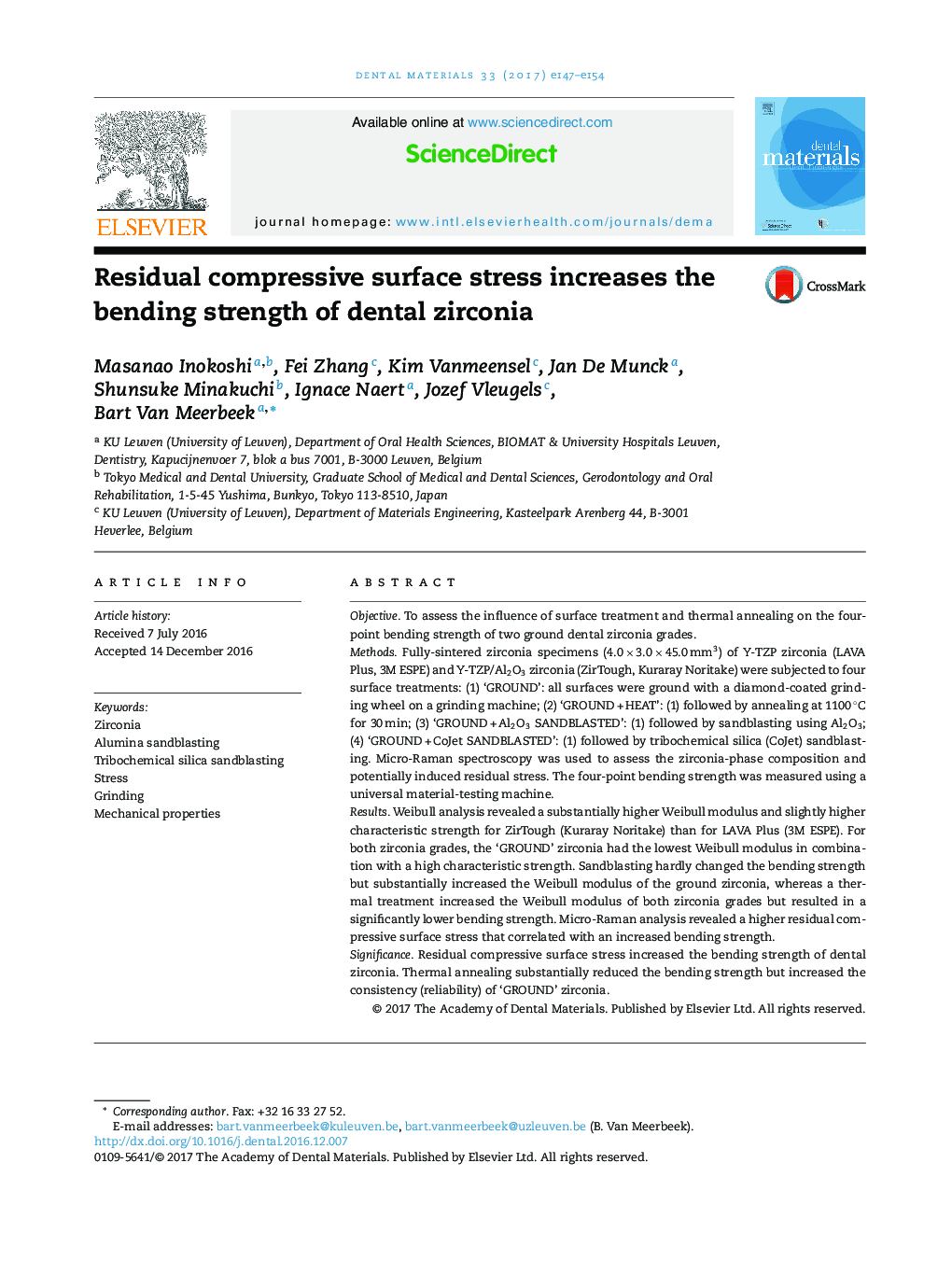| کد مقاله | کد نشریه | سال انتشار | مقاله انگلیسی | نسخه تمام متن |
|---|---|---|---|---|
| 5432903 | 1398046 | 2017 | 8 صفحه PDF | دانلود رایگان |
- Grinding with/without additional sandblasting induces residual compressive stress.
- Residual compressive stress increases the bending strength of dental zirconia.
- Thermal annealing reduces the bending strength of dental zirconia.
ObjectiveTo assess the influence of surface treatment and thermal annealing on the four-point bending strength of two ground dental zirconia grades.MethodsFully-sintered zirconia specimens (4.0 Ã 3.0 Ã 45.0 mm3) of Y-TZP zirconia (LAVA Plus, 3M ESPE) and Y-TZP/Al2O3 zirconia (ZirTough, Kuraray Noritake) were subjected to four surface treatments: (1) 'GROUND': all surfaces were ground with a diamond-coated grinding wheel on a grinding machine; (2) 'GROUND + HEAT': (1) followed by annealing at 1100 °C for 30 min; (3) 'GROUND + Al2O3 SANDBLASTED': (1) followed by sandblasting using Al2O3; (4) 'GROUND + CoJet SANDBLASTED': (1) followed by tribochemical silica (CoJet) sandblasting. Micro-Raman spectroscopy was used to assess the zirconia-phase composition and potentially induced residual stress. The four-point bending strength was measured using a universal material-testing machine.ResultsWeibull analysis revealed a substantially higher Weibull modulus and slightly higher characteristic strength for ZirTough (Kuraray Noritake) than for LAVA Plus (3M ESPE). For both zirconia grades, the 'GROUND' zirconia had the lowest Weibull modulus in combination with a high characteristic strength. Sandblasting hardly changed the bending strength but substantially increased the Weibull modulus of the ground zirconia, whereas a thermal treatment increased the Weibull modulus of both zirconia grades but resulted in a significantly lower bending strength. Micro-Raman analysis revealed a higher residual compressive surface stress that correlated with an increased bending strength.SignificanceResidual compressive surface stress increased the bending strength of dental zirconia. Thermal annealing substantially reduced the bending strength but increased the consistency (reliability) of 'GROUND' zirconia.
Journal: Dental Materials - Volume 33, Issue 4, April 2017, Pages e147-e154
